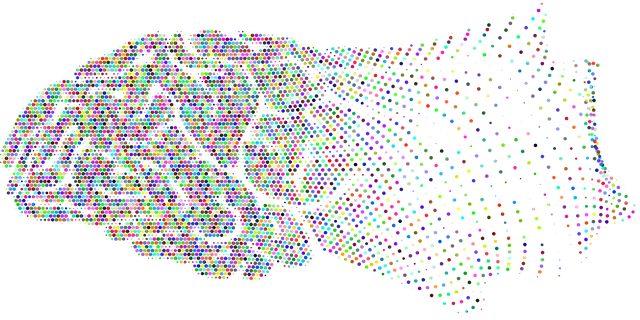Castle Rock Functional Neurological Disorder (RFM) Therapy offers a holistic approach to treating FNDs through cognitive behavioral therapy, sensory integration, and motor retraining. Focusing on crisis intervention, evidence-based practices, and public awareness, it aims to improve symptoms and overall functioning. Resilience-building exercises, tailored to individual needs, include mindfulness, cognitive reframing, and emotional regulation strategies. RFM helps manage anxiety and stress, empowering individuals to take control of their mental well-being through practical tools and Mind Over Matter principles. With dedicated practice and support, individuals can overcome challenges and achieve positive outcomes.
Discover the transformative power of Castle Rock Functional Neurological Disorder (CRFNT) Therapy, a pioneering approach to enhancing resilience. This article delves into CRFNT’s core principles and explores how its unique ‘Resilience Building Exercises’ can empower individuals to navigate life’s challenges.
We’ll guide you through a step-by-step implementation process, highlighting the benefits and potential challenges of integrating CRFNT techniques into daily routines.
- Understanding Castle Rock Functional Neurological Disorder Therapy (RFM)
- Implementing Resilience Building Exercises: A Step-by-Step Guide
- Benefits and Potential Challenges of RFM in Daily Life
Understanding Castle Rock Functional Neurological Disorder Therapy (RFM)

Castle Rock Functional Neurological Disorder (RFM) Therapy is a specialized approach designed to help individuals coping with functional neurological disorders (FNDs). This therapy utilizes a unique combination of techniques, including cognitive behavioral therapy, sensory integration strategies, and motor retraining exercises, tailored to each patient’s specific needs. The primary goal of RFM is to improve symptoms and enhance overall functioning by addressing the underlying neural patterns associated with FNDs.
The Castle Rock approach stands out in the field of mental health due to its holistic nature. It not only focuses on crisis intervention guidance but also advocates for evidence-based practices through Mental Health Policy Analysis and Advocacy. Additionally, RFM therapy raises public awareness campaigns development by educating communities about less understood conditions like FNDs, fostering a supportive environment for those affected.
Implementing Resilience Building Exercises: A Step-by-Step Guide

Implementing Resilience Building Exercises is a transformative process that can significantly enhance individuals’ ability to cope with challenges and adversity. It involves a structured approach to empower people, especially those with functional neurological disorders like Castle Rock Functional Neurological Disorder (CRFND), to build mental fortitude and resilience. Here’s a practical guide:
1. Assess Needs and Goals: Begin by understanding the unique needs of your participants. Identify specific areas where they struggle, whether it’s managing stress, anxiety, or emotional regulation. Set achievable goals aligned with their aspirations for personal growth and well-being. This step ensures that the exercises are tailored to address relevant challenges.
2. Design a Customized Program: Create a Mental Health Education Programs Design that incorporates a variety of resilience-building techniques. Incorporate activities like mindfulness meditation, cognitive reframing, and emotional regulation strategies. For instance, teaching simple breathing exercises can instantly boost confidence and reduce anxiety. Empathy Building Strategies are also vital; role-playing scenarios can help individuals practice responding to difficult situations with compassion and understanding.
3. Create a Safe Space: Establish an environment where participants feel safe to explore their emotions and share experiences without judgment. Foster open communication, encouraging active listening among group members. This supportive atmosphere is crucial for building trust and fostering meaningful connections that promote empathy.
4. Gradually Introduce Exercises: Start with basic resilience-building techniques and gradually introduce more advanced practices as comfort levels allow. Provide clear instructions and offer one-on-one support to ensure everyone can engage effectively. Regularly review progress, celebrating small victories along the way.
5. Encourage Consistent Practice: Resilience is a skill that grows stronger with consistent effort. Encourage participants to incorporate daily practices into their routines, such as journaling, positive self-talk, or short mindfulness breaks. Regular engagement deepens their understanding and reinforces learned techniques.
Benefits and Potential Challenges of RFM in Daily Life

Implementing Castle Rock Functional Neurological Disorder (RFM) therapy can offer significant benefits for individuals dealing with various challenges, including anxiety and stress. This approach focuses on empowering people to take control of their mental well-being by harnessing the power of their minds. RFM provides practical tools and techniques to manage and overcome daily struggles, fostering resilience and a sense of calm amidst life’s uncertainties. By combining therapeutic exercises with Mind Over Matter principles, individuals can learn to navigate through crises and find anxiety relief, ultimately enhancing their overall quality of life.
However, introducing RFM into daily routines may present certain challenges. Some people might find it difficult to dedicate time for self-care and practice the necessary exercises consistently. Additionally, as RFM involves confronting and managing emotions, individuals could experience temporary discomfort or resistance when facing their fears and past traumas. Crisis Intervention Guidance can be beneficial in these instances, offering strategies to overcome initial obstacles and ensure a smoother integration of RFM into one’s life. Through patience, commitment, and professional support, the potential challenges can be successfully navigated, leading to long-lasting positive outcomes.
Castle Rock Functional Neurological Disorder Therapy (RFM) offers a promising approach to enhancing resilience and managing daily life challenges. By implementing Resilience Building Exercises, individuals can develop coping strategies that promote mental well-being. This article has provided a comprehensive guide to understanding RFM and its practical application. Through structured steps and an awareness of potential challenges, one can unlock the benefits of RFM, fostering adaptability and a more fulfilling life.














